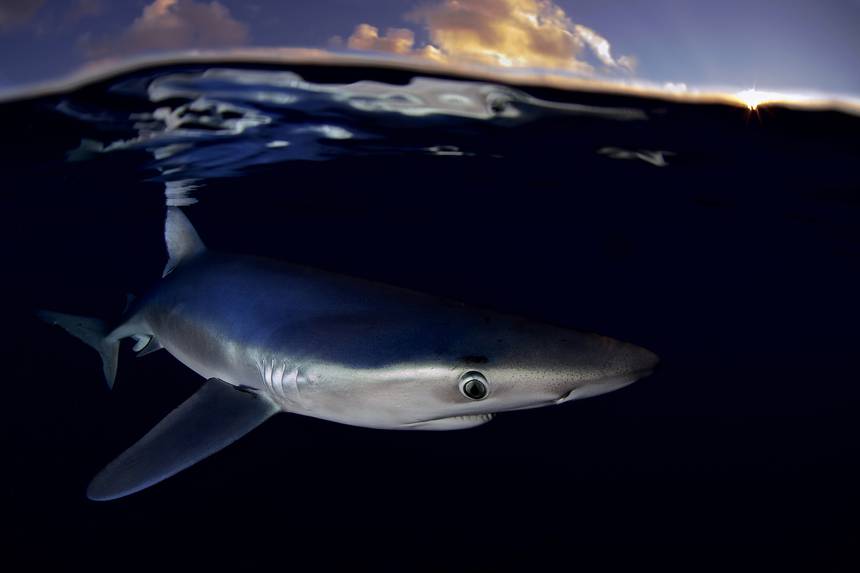Written by Katherine Martinko / TreeHugger
An alarming case study in the North Atlantic bolsters Greenpeace’s call for a Global Ocean Treaty.
Sharks have a bad rap, but a world without sharks would be a terrible one to inhabit. These apex predators have been part of the marine ecosystem for 450 million years and help to maintain balance among different species. When shark numbers go down, others go up, such as sea lions and cow-nosed rays, and fish migration patterns change.
Sharks are in far more danger from humans than humans are from sharks, and they need our help. A new report from Greenpeace International has revealed that, in the North Atlantic Ocean, some fishing boats are catching up to four times more sharks than swordfish, despite swordfish being the boats’ official target.
This shocking statistic demonstrates that the governing body tasked with regulating fishing in this region is failing to do its job. The swordfish/shark fishery is supposed to be regulated by the International Commission for the Conservation of Atlantic Tunas (ICCAT), but as Greenpeace reports,
“It is consistently failing to put in place effective measures to ensure the future sustainability of its fisheries, and faces widespread criticism for its incompetence. ICCAT does not currently set catch limits on the number of sharks caught in the North Atlantic.”
The three most commonly caught sharks in this region are the shortfin mako (designated as endangered), porbeagle, and blue shark (the most fished shark species around the world, mostly for its fins, whose status is considered ‘highly uncertain’). In the case of the shortfin, scientists estimated that if its population were to have a 54 percent chance of recovery, then the catch would have to be reduced to zero. Despite this, an estimated 3,600-4,750 tonnes were taken, according to 2017 numbers.
Regarding the blue shark, ICCAT’s regulations are so weak that they don’t even require shark fins to be attached to a body when accounted for, which further incentivizes the illegal shark fin trade in the EU. Some readers might be surprised to learn that this is an issue in Europe, but Spain ranks third in the world behind India and Indonesia in reported shark catches and is one of the leading producers of unprocessed shark fins.

© Paul Hilton/Greenpeace – Shark Fins onboard Taiwanese Vessel Nian Sheug in the Pacific Ocean
The Greenpeace reports states that ICCAT carries out periodic assessments of these different shark stocks in the North Atlantic, but “does not set limits on the total allowed catch for these species, and the stock assessments are relatively infrequent given the scale of the fishery.”
In place of such inadequate oversight, Greenpeace would like to see the establishment of a Global Ocean Treaty that would create protected zones in international waters, where species could breed, grow, feed, and migrate without the threat of human interference. Species like sharks are complex creatures that “require coordinated efforts to protect breeding grounds and migration routes across vast areas.” Research has shown that protected zones do work:
“In one study of nearly 90 marine protected areas with varying degrees of protection, fourteen times more sharks were found inside effectively protected areas than in unprotected areas.”
Less than 1 percent of the world’s oceans are protected today, and the high seas are notoriously unregulated, lawless places. A Global Ocean Treaty would go a long way toward improving this situation and ensuring the future wellbeing of sharks – and ours, as humans who are deeply dependent on healthy oceans for our own survival. See here an interactive map that reveals various scenarios for protection.


